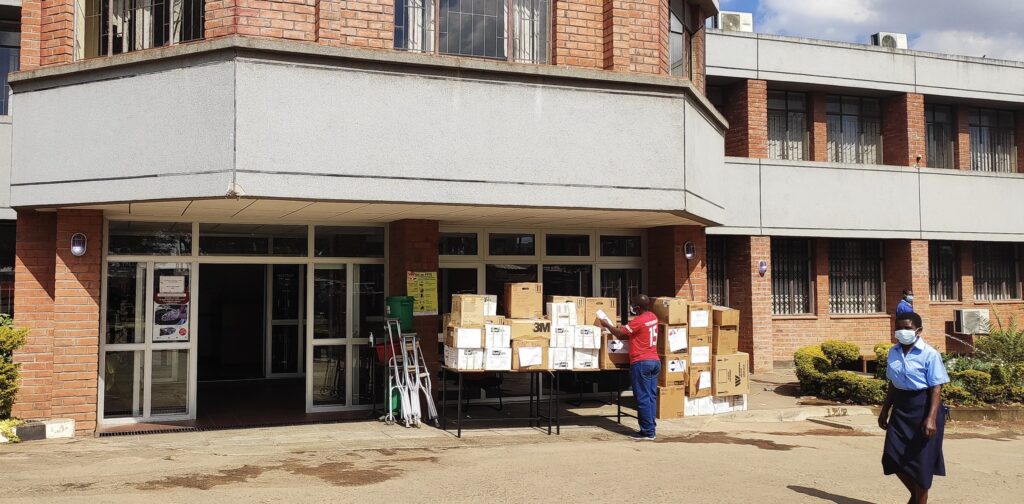
Blantyre, Malawi … It is a ceremony repeated over and over again. Each time medical, educational, or agricultural supplies arrive at a new location in Malawi, an event known as “the turning over ceremony,” takes place. Richard Stephens, of the Malawi Project recalls, “I thought at first this was sort of strange. We always had such a short time in the country, and so much to get done. There were so many places to go to, so many people to see, and so many projects to look in on. Why were we taking so much time with all of these gatherings, speeches, and celebrations? Why so many festivities when we could be doing more productive things?”
Stephens was right, as much of the time during each distribution was being taken up as everyone slowly gathered for some sort of social ceremony. As the years passed Stephens, and the rest of the Malawi Project teams, grew accustomed to these ceremonies and some even began to look forward to them. It was the same each time. Arrive at a hospital, school, or agricultural co-operative, with a large number of needed supplies. Unpack the supplies. Help set up the chairs or tables and then greet everyone from the hospital, farm, or school location receiving the supplies. Wait until a large number of people arrive. The staff. Community leaders. Tribal authority. Church groups.
These celebrations were always immense. But it wasn’t long before the American guests learned it was far more than some sort of community gathering. It was a check on the system, a balance that would ensure the supplies were used for their intended purpose. While everyone of any importance got up to give speeches, everyone in the audience was facing what was being delivered. People could count the number of mobility units, beds, mattresses, boxes of supplies. The tribal chiefs would need to keep in mind these supplies were there for the people of their community, and the community could see just what the chiefs would be distributing. The church leaders would remember specific things that would help their congregation, and the community had an expectation of the number of schoolbooks, drip irrigation systems, or other supplies that they would soon be utilizing.
In the days that followed the “turning over ceremony” the supplies dare not “disappear.” People other than the intended medical staff would not be found with a box of medical supplies. A family in a village hut would not acquire a new mattress intended for the hospital. A mobility unit intended to give the gift of independence to a disabled villager would not be given to child as a toy. The “turning over ceremony” had served its real purpose. In a kind, respectful, and resourceful way they had a system in place that protected the supplies so they would go where they were intended, and they did it in a non-intrusive, non-confrontive way. Working quietly and carefully the Malawians had insured accountability to the program.
